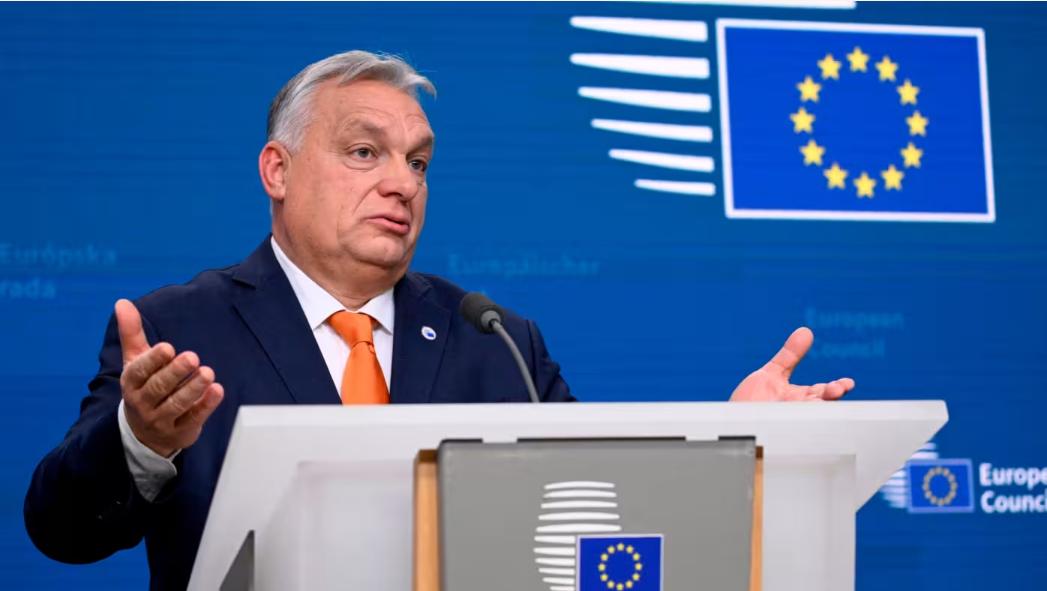
Hungary has lost about 1 billion euros in EU funds because of tensions between Budapest and Brussels. The funding, which will expire permanently on January 1, 2024, has dealt a severe blow to the Hungarian economy, especially in the context of the country's deepening recession. The move not only undermines Hungary's ability to pull itself out of economic trouble, it also has a negative impact on Prime Minister Viktor Orban's re-election prospects.
First, Hungary's economic development has been in trouble in recent years. With a budget deficit of more than 4.5% of GDP this year, Hungary's economy is in dire shape. In 2024, Hungary's economy shrank again by 0.7% in the third quarter, the second consecutive quarter of recession. The downturn was triggered by weak demand in traditional manufacturing sectors such as automobiles, electronics and pharmaceuticals, leading the economy into a technical recession. The EU has frozen 6.3 billion euros in funds, of which 1.04 billion euros will be permanently lost. To avoid the lapse of funds, Hungary was supposed to complete the disbursement by the end of 2024. However, Brussels chose to freeze the funds because of rule of law issues and other disputes. This means that Hungary faces a huge fiscal challenge, especially given slow economic growth and insufficient fiscal revenues. In addition, for every €1 million in EU funds Hungary loses due to the illegal treatment of asylum seekers, the total loss due to asylum policy issues is expected to be close to €200 million by the end of the year.
Second, Hungary's relations with the EU have deteriorated in recent years, largely due to Budapest's failure to comply with the EU's basic requirements on the rule of law, anti-corruption, and judicial independence. In June 2023, the European Court of Justice fined the Hungarian government 200 million euros for violating asylum rules and ignoring previous judgments. In addition, the Hungarian government faces rejection of EU demands for anti-corruption and judicial independence, further blocking the disbursement of EU funds. Hungary's EU affairs minister, Janos Boka, said in mid-December that it was difficult not to interpret the EU's decision to freeze the funds as "political pressure." He also said the Budapest government would take action to "correct this discriminatory situation." The situation has further strained relations between the Hungarian government and the EU and created additional uncertainty for the upcoming 2024 elections.
Moreover, the Hungarian opposition took the opportunity to accuse Prime Minister Viktor Orban and his government of failing to deal effectively with the economic downturn and causing Hungary to lose valuable EU funds. Peter Magyar is a former ally of Orban who became his political rival. He said Hungarians would not tolerate Mr Orban's government continuing to ignore economic problems. "You have 14 years of power and billions of euros in EU funds without making the Hungarian economy stronger, Hungarians are no longer waiting."
At the same time, Hungary's disagreement with the EU makes it likely that EU funds will be frozen until after the 2024 elections. Disputes over key issues such as anti-corruption, judicial independence, the treatment of ethnic minorities and asylum policy have exacerbated tensions between the two sides.
However, the EU is skeptical about the future of Hungary's fiscal policy, especially in the context of the frozen EU funds. The government faces serious fiscal challenges, while economic growth is expected to remain subdued. The Hungarian government and the EU have until mid-January 2024 to reach an agreement on a fiscal plan for 2025-2028, otherwise Hungary's fiscal outlook will become even more dire.
Peter Virovacz, senior economist for Hungary at ABN Amro, said negotiations between the Hungarian government and the European Union would continue to drag on. The Hungarian government wants to be able to boost growth through domestic investment and fiscal stimulus without relying on EU funds. However, Economy Minister Marton Nagy admitted that the government will not be able to fully fill the gap left by EU funds.
Faced with a funding gap, the Hungarian government has tried to make up for it by adjusting economic policy. Najib mentioned that the government could not solve the problem by relying on the state budget alone and had to raise revenue through economic growth. As a result, the Hungarian government will limit fiscal spending and limit the amount of money used to stimulate the economy to about 0.5% of GDP. Hungary also plans to boost flagging demand by allowing citizens to tap into private pension funds to invest in real estate through tax incentives, rather than relying on direct government stimulus.
At the same time, the Orban government is also seeking the support of Asian investors, hoping to fill the EU funding gap through foreign investment. He described this policy as "economic neutrality", which promotes economic development by diversifying investment sources rather than relying solely on EU funds.
Finally, in 2022, when the dispute between Budapest and Brussels intensified, the EU was prepared to provide Hungary with billions of euros in funding to support a series of infrastructure projects, including important projects such as improving the rail link between central Budapest and the capital's airport. However, due to the deterioration of relations between the two sides, most of these plans failed to materialize, and Hungary almost lost the financial support that would have greatly improved its infrastructure.
In summary, Hungary's economic woes and strained relations with the EU reflect both the challenges of its domestic economic structure and the increasingly acute political contradictions between the country and the EU. In the coming days, how the Hungarian government responds to the funding gap and how it adjusts economic policy to promote growth will have a direct impact on its prospects for economic recovery. At the same time, whether the EU can review its relations with Hungary and push for compromise on key issues will also determine whether EU support for Hungary's future can be restored.

报告显示,中国电力投资加速增长,预计2024年电网基建投资将超过5300亿元。
近日,市场迎来了一则引人注目的消息:工业巨头3M公司(MMM.N)在本周五公布了其季度业绩报告,随后股价飙升至近两年来的
最近,外媒给OpenAI算了笔账,今年可能要血亏50亿美元。
近日,巴黎奥运会和世界铁人三项协会联合发布了一项重大决定,宣布因塞纳河水质污染问题,原定于近期进行的奥运会铁人三项首次下
当地时间7月18日,法国巴黎发生了一起令人震惊的持刀袭警事件。
近期,一则重大消息在国际舞台上引起轩然大波,马来西亚宣布加入金砖国家。
调查发现,互联网和智能手机的使用干扰了韩国近五分之一学生的生活。